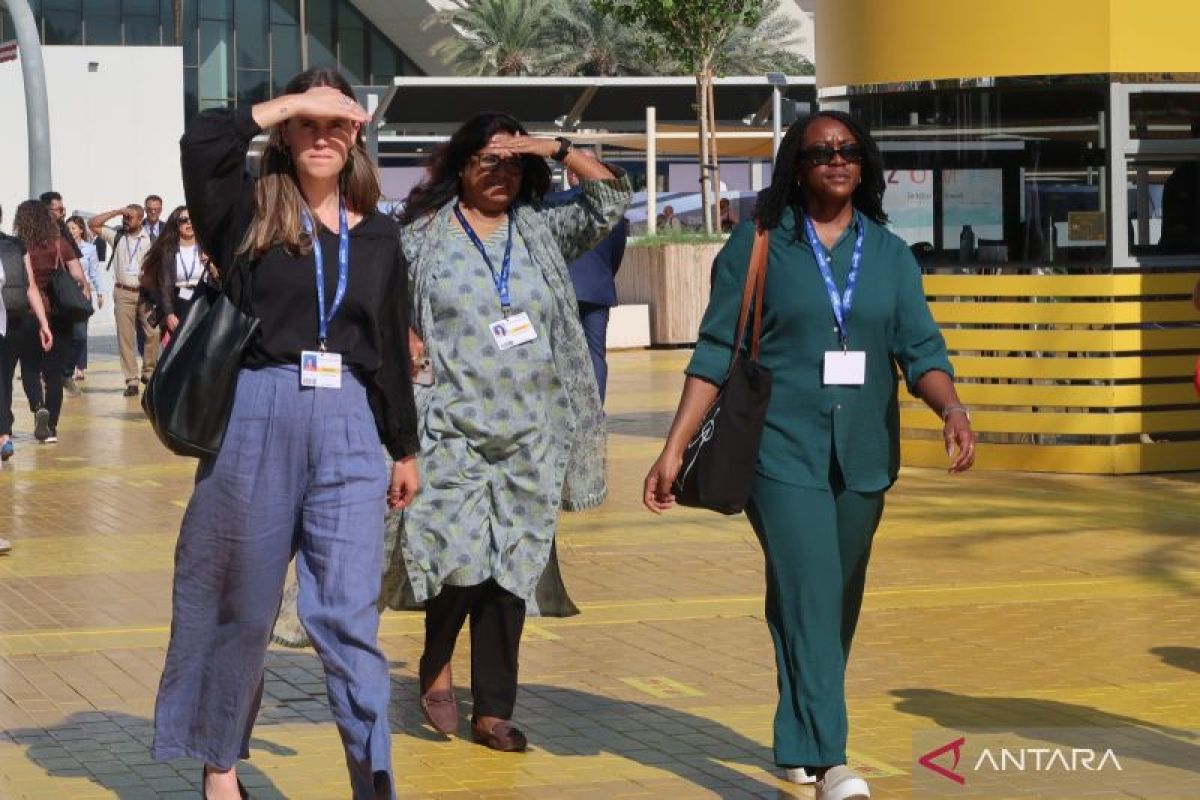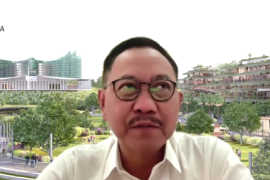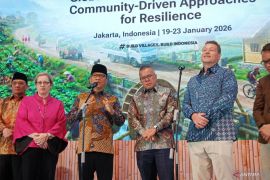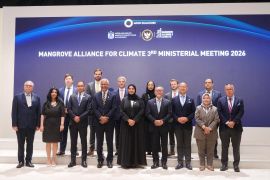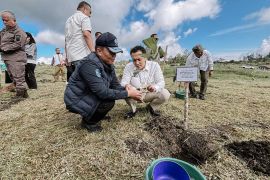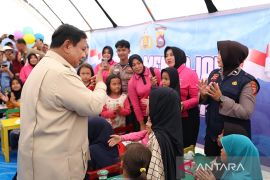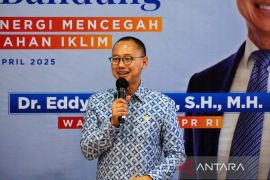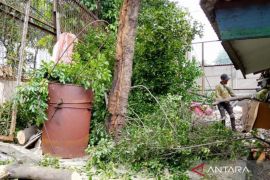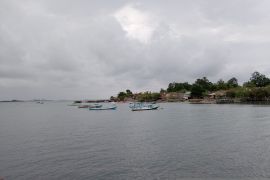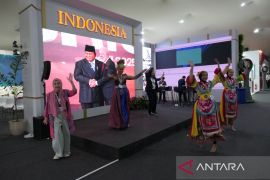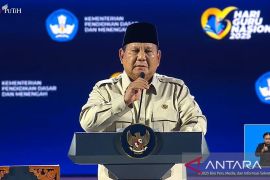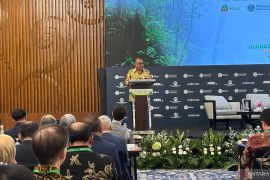We should be self-reliant. We cannot afford to rely on developed countriesDubai (ANTARA) -
Indonesia's Maritime Affairs and Investment Coordinating Ministry invited archipelagic and island states to collaborate in exchanging knowledge and creating innovations to boost the capacity in dealing with adverse impacts of climate change on coastal regions.
Speaking at the Conference of the Parties 28 (COP28) climate change high-level event, the ministry's Deputy for Coordination of Maritime and Energy Sovereignty, Jodi Mahardi, noted that the rise in sea levels has been threatening the existence of coastal regions of archipelagic and island states.
"We should be self-reliant. We cannot afford to rely on developed countries," Mahardi stated in Dubai, the United Arab Emirates, on Saturday.
He remarked that the Indonesian government has recently collaborated with Fiji to conduct training activities on the use of simple floating fishing nets for people of the Pacific state, so they can sustainably optimize fishery resources.
Mahardi expressed belief that archipelagic and island states should boost solidity among them and make the most of the Archipelagic and Island State (AIS) Forum as a platform for forging collaboration in dealing with issues occurring in coastal regions.
The AIS Forum serves as a forum that facilitates archipelagic and island states to bolster collaboration among them in handling four global problems: mitigation and adaptation to climate change, blue economy, management of marine plastic waste, and maritime governance.
Related news: Jokowi discusses bilateral cooperation with UAE President in Dubai
Indonesia is among the founders of the AIS Forum that was established in 2018. In October this year, Indonesia had hosted the 1st High-Level Meeting of the AIS Forum in Badung, Bali Province.
Agriculture, Environment, and Climate Change Minister of Seychelles, Flavien Joubert, drew attention to the fact that plenty of coastal regions in his country are currently struggling with tidal flooding.
Bearing that in mind, he remarked that Seychelles is seeking to prioritize applying the blue economy concept in utilizing marine and fishery resources, including by making efforts to protect mangrove and seagrass beds.
The Government of Seychelles is targeting the protection of 100 percent of seagrass beds by 2030, he stated.
Fijian Ambassador to Indonesia Amenatave Yauvoli made a similar statement, saying that the Melanesian country has been facing the threats of rising sea levels induced by climate change.
The ambassador opined that the relocation of communities inhabiting the coastal regions threatened by the rise in sea levels would not address the root of the problem. Instead, such a measure will result in a new problem, he added.
In the efforts to overcome the problem, he noted that Fiji has been striving to adapt to climate change by planting mangroves and promoting nature-oriented solutions in coastal regions.
Related news: Jokowi says US$1T of investment needed to reach NZE target by 2060
Speaking at the Conference of the Parties 28 (COP28) climate change high-level event, the ministry's Deputy for Coordination of Maritime and Energy Sovereignty, Jodi Mahardi, noted that the rise in sea levels has been threatening the existence of coastal regions of archipelagic and island states.
"We should be self-reliant. We cannot afford to rely on developed countries," Mahardi stated in Dubai, the United Arab Emirates, on Saturday.
He remarked that the Indonesian government has recently collaborated with Fiji to conduct training activities on the use of simple floating fishing nets for people of the Pacific state, so they can sustainably optimize fishery resources.
Mahardi expressed belief that archipelagic and island states should boost solidity among them and make the most of the Archipelagic and Island State (AIS) Forum as a platform for forging collaboration in dealing with issues occurring in coastal regions.
The AIS Forum serves as a forum that facilitates archipelagic and island states to bolster collaboration among them in handling four global problems: mitigation and adaptation to climate change, blue economy, management of marine plastic waste, and maritime governance.
Related news: Jokowi discusses bilateral cooperation with UAE President in Dubai
Indonesia is among the founders of the AIS Forum that was established in 2018. In October this year, Indonesia had hosted the 1st High-Level Meeting of the AIS Forum in Badung, Bali Province.
Agriculture, Environment, and Climate Change Minister of Seychelles, Flavien Joubert, drew attention to the fact that plenty of coastal regions in his country are currently struggling with tidal flooding.
Bearing that in mind, he remarked that Seychelles is seeking to prioritize applying the blue economy concept in utilizing marine and fishery resources, including by making efforts to protect mangrove and seagrass beds.
The Government of Seychelles is targeting the protection of 100 percent of seagrass beds by 2030, he stated.
Fijian Ambassador to Indonesia Amenatave Yauvoli made a similar statement, saying that the Melanesian country has been facing the threats of rising sea levels induced by climate change.
The ambassador opined that the relocation of communities inhabiting the coastal regions threatened by the rise in sea levels would not address the root of the problem. Instead, such a measure will result in a new problem, he added.
In the efforts to overcome the problem, he noted that Fiji has been striving to adapt to climate change by planting mangroves and promoting nature-oriented solutions in coastal regions.
Related news: Jokowi says US$1T of investment needed to reach NZE target by 2060
Translator: Sugiharto P, Tegar Nurfitra
Editor: Jafar M Sidik
Copyright © ANTARA 2023
